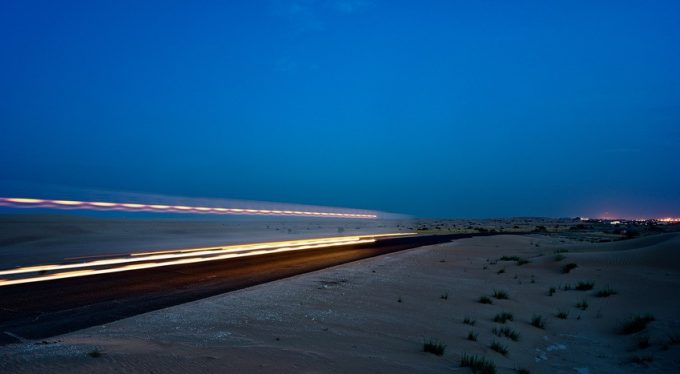ESG legislation requires a continuous approach to risk monitoring
Due diligence legislation recently passed in the EU and US has introduced new disclosure regulations ...

Danish investors in DSV continue to press the logistics giant over the environmental, social and governance (ESG) aspects of its $10bn joint-venture (JV) in Saudi Arabia, supporting the Gulf kingdom’s futuristic Neom mega-city project.
DSV announced in October that “the JV will provide end-to-end supply chain management, development and investments in transport and logistics assets and infrastructure, as well as transport and delivery of goods and materials within Neom”.
Pension fund AkademikerPension and another investor, LD Fonde, put forward a shareholder proposal at DSV’s 14 March AGM specifically asking the company to expand its reporting on how it ‘identified and handled human rights risks’.
DSV’s board has already backed the proposal, AkademikerPension said in a statement seen by The Loadstar, which added: “DSV’s reaction to the concerns of the outside world and investors regarding the Neom project – notably with regard to Saudi Arabia’s human rights record and reports of local inhabitants being forcibly removed from their land – suggests that there is a blind spot in the company that management should address.”
It added: “With this proposal, we want DSV to document how they work when carrying out projects with a high risk of human rights violations. Such projects entail a stricter obligation. We believe that DSV’s joint-venture project with Saudi Arabia falls into this category.”
AkademikerPension’s investment director, Anders Schelde, said ‘The Line’ (described by Neom as a revolution in urban living – a cognitive city stretching across 170 km) “is a project with enormous challenges and risks in relation to the climate, labour rights and human rights, so DSV is putting its hand in a hornet’s nest with this investment. This calls for careful documentation.”
He continued: “It’s no secret that we, with our ‘accountability’ glasses on, are very concerned about this cooperation. It is well known that Saudi Arabia has a strained relationship with human rights and the Paris Agreement. At the same time, DSV has so far not prioritised documenting its processes in the human rights area, and it is fair to say that this has become more important now.”
Even though shareholder proposals are about accountability, the return on investment was also important, explained Schelde.
“As a long-term investor, we believe companies that manage and report on their approach to human rights are better run. At the same time, we believe there are high return risks associated with entering into co-operation agreements with companies and countries that have a long history of serious human rights violations. Therefore, as investors, we need to know how DSV addresses these risks,” he concluded.
In an email response to questions from Danish digital business media provider Finans, DSV’s EVP of investor relations, Flemming Ole Nielsen, said: “Respect for human rights and labour conditions are a high priority for us and, as stated in the notice of our upcoming AGM, DSV’s board of directors supports the proposal from AkademikerPension and LD Fonde.”
At the Q4/FY results conference call last month, CEO Jens Lund said he expected the Neom JV to be operational in Q2 24, with DSV’s initial capital outlay this year being in the region of $200m to $250m.
The first investments will be related to logistics infrastructure (warehouses and layoff yards), offices for the JV and accommodation for employees, DSV told The Loadstar.
DSV’s new group COO, Brian Ejsing, will be responsible for overseeing the JV from HQ in Denmark, while the appointment of a local, Neom management team is well under way.
DSV expects the project to entail long- and short-term chartered ocean freight capacity – mainly bulk vessels – with demand increasing as the project ramps up. Chartered air cargo capacity is currently not part of the plans.
Comment on this article